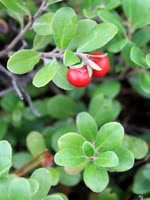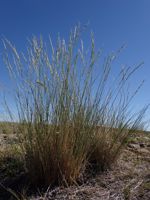Mon-Fri 9am - 5pm Mountain time
Bearberry vs Bluebunch Wheatgrass
Arctostaphylos uva-ursi
Pseudoroegneria spicata (Agropyron spicatum)
NOT AVAILABLE THIS SEASON - MIGHT RETURN
CUSTOM GROW
Bearberry is a dwarf shrub known for its creamy pink flowers and red edible fruits.
It is great as a filler in gardens and flowerbeds in place of invasive ground cover plants, like English Ivy.
Bearberry will attract hummingbirds, butterflies and bees to your property. It is one of the top 12 plants recommended by the Alberta Native Bee Council to support pollinators.
Bluebunch Wheatgrass is a native perennial bunchgrass common across prairies, foothills, and open woodlands. Longer-lived than many other grass species, it develops deep, fibrous roots that stabilize soils and make it drought-tolerant once established. It is a cool-season grass, growing most actively in spring and fall and slowing during the heat of summer.
This hardy grass provides excellent forage for deer, elk, and bighorn sheep, and is especially palatable to livestock. Its seeds feed birds and small mammals, while its bunching growth offers protective cover for ground-nesting birds such as sparrows and sage-grouse, as well as shelter for small mammals. Bluebunch Wheatgrass is well-suited to rangeland & prairie restoration, naturalization, and erosion control projects.

